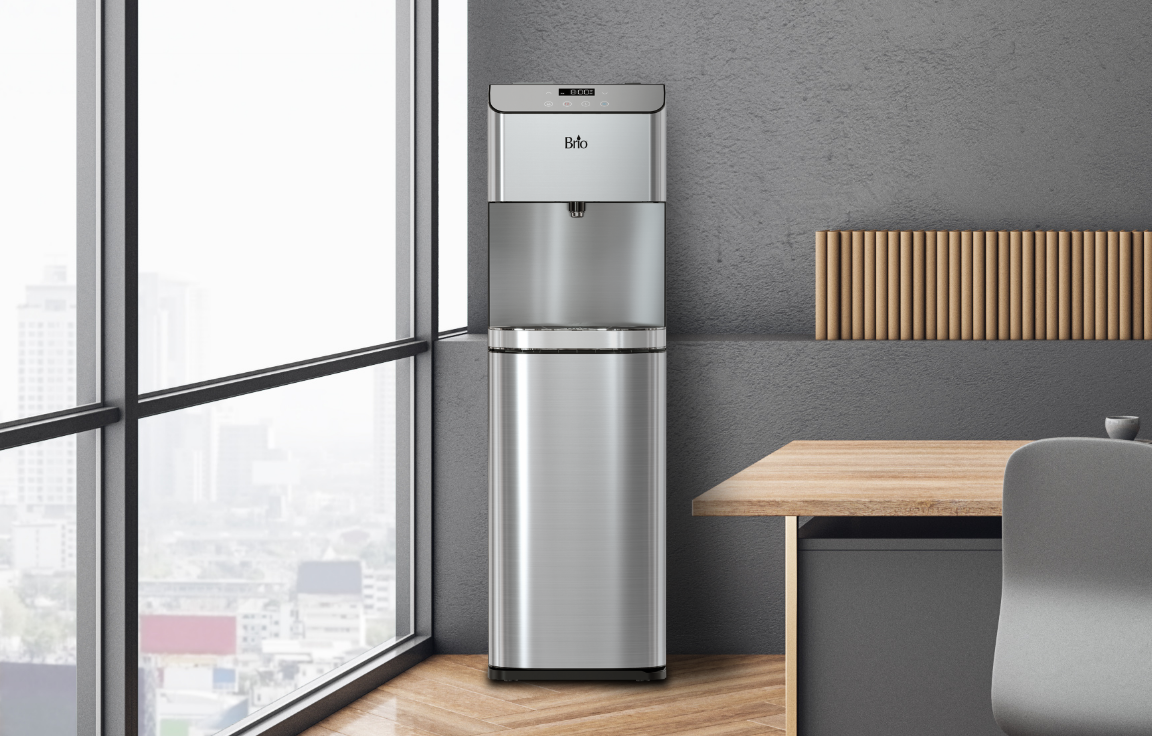Having hot and cold water on demand makes staying hydrated easy. But, what does it truly cost to have clean water at your fingertips? How much energy does it require to keep your cooler running? These questions are asked of us all the time.
Purchasing a water cooler, especially for your home, is a long-term investment. It may initially seem like a big outlay, but the benefits are significant.
Electricity consumption depends on usage
Those who are looking to conserve power to be more eco- or budget-friendly should take note that the consumption of energy depends entirely on how frequently hot and cold water is dispensed. However, there is a baseline average of how much energy a water dispenser consumes.
Keep on top of your electricity usage with a power meter
To accurately measure how much electricity your water cooler utilizes you can use a plug-in power meter. You’ll be able to monitor your usage at home or in the office and keep a record of how much is consumed.
Always keep in mind that the amount of power used is dependent on the amount the cooler is used. The cooling and heating systems require power for the cooling towers, heating coils and maintaining the hot and cold water temperatures. Thus, a cooler in an office with multiple employees will use more power than one in a home with a small family.
Use a timer switch to conserve energy
Even if you have a Brio energy-saving cooler, there is a way to conserve even more energy: a timer switch. This feature controls the power supply to the cold and hot water dispenser, so only power the electric water dispenser when there will be water use.
By choosing the right cooler and utilizing a timer switch, you can enjoy your water AND conserve power!
Are Brio water coolers awarded Energy Star Ratings?
Since many consumers don't have a plug-in power meter, Energy Star Ratings are used to compare water coolers and their brands. Water coolers that have received the Energy Star Ratings use up to 50% less than water coolers without the certification.
As of now, if a water cooler utilizes less than 0.16 kWh/day, then it can be awarded the certification. If it has a certification, you'll typically find it on the package.
At Brio, we take pride in our products, their innovative features and energy certifications. Brio produces various high-end features that require electricity, but it does so while meeting energy star ratings. Case in point: the Brio Moderna. This sleek and modern dispenser has top-of-the-line features, including stainless steel materials, self-cleaning functionality, a night light and a digital clock.
Which water filtration system should I choose?
If you’re struggling to make a choice between a bottled water cooler, bottleless water cooler or an undersink filtration system, read our article: How To Choose The Right Water Cooler Dispenser. There are many factors to consider when choosing: lifestyle, space, functionality, family or office size, price point and so on. It can be overwhelming, but with a little research you’ll soon be on your way to an endless supply of purified, clean, refreshing water. Whatever your requirements, Brio has you covered.














































































